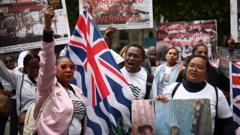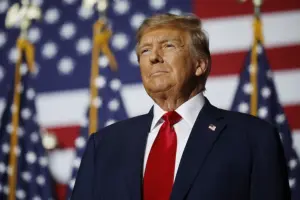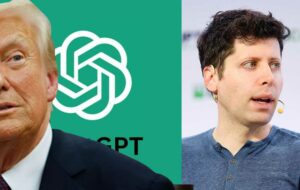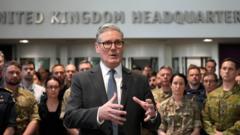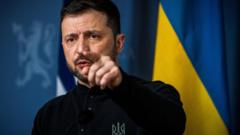In a strongly worded letter to Prime Minister Keir Starmer, prominent British artists urge the government to support amendments to existing copyright legislation, claiming the lack of protections against AI could jeopardize the UK's creative industry and their own livelihoods.
British Artists Rally for Copyright Reforms to Safeguard Against AI Exploitation

British Artists Rally for Copyright Reforms to Safeguard Against AI Exploitation
A coalition of over 400 British musicians and artists, including Elton John and Dua Lipa, appeal to the government for urgent changes to copyright laws to protect their creative works from misuse by AI technologies.
In a recent surge of concern for intellectual property rights, a coalition of more than 400 British musicians, writers, and artists—including renowned figures like Sir Elton John, Dua Lipa, and Sir Ian McKellen—have called upon the Prime Minister to modernize copyright laws to shield their creative output from exploitation by artificial intelligence (AI).
The collective's plea, addressed to Sir Keir Starmer, emphasizes that without legal protections, artists risk collectively "giving away" their creative material to tech giants, putting the UK’s stature as a creative leader in jeopardy. They are advocating for an amendment to the Data (Use and Access) Bill which would mandate greater transparency from AI developers regarding their use of copyrighted works to train AI systems.
A government representative replied to the concerns, affirming a commitment to ensuring both creative industries and AI can prosper without one undermining the other. They noted ongoing consultations regarding proposed measures that would be beneficial for all involved parties.
The letter boasts a prominent roster of signatories, including celebrated figures like author Kazuo Ishiguro, playwright David Hare, and pop icons like Kate Bush and Robbie Williams. Notably, Sir Paul McCartney expressed his worries regarding the potential for AI to exploit artists, reinforcing the coalition's argument that artists play a crucial role in the creative landscape, which AI relies on for development.
However, not all experts support the artists' position. Julia Willemyns from the Centre for British Progress think tank voiced concerns that such restrictive copyright measures could drive AI development offshore and stifle local growth, arguing that these proposals may inadvertently harm rather than help the UK’s creative economy.
As discussions surrounding this issue unfold, many artists have become increasingly wary of how their works are incorporated into the data sets that fuel AI systems. This concern echoes past protests, exemplified by a silent album released by artists like Annie Lennox as a form of dissent against proposed copyright changes.
The government has been reconsidering its stance, reportedly in light of strong feedback from creators regarding copyright implications. Ishiguro remarked on the fairness of updating longstanding laws to prevent large corporations from overshadowing individual artists' rights.
In a related legislative battle, MPs previously dismissed an amendment by Baroness Beeban Kidron aimed at enforcing AI compliance with UK copyright regulations. In response, she is now pushing for new transparency requirements that could facilitate fair licensing agreements between tech companies and creators.
A government statement underscored the importance of carefully weighing the complexities of the ongoing consultations while emphasizing their commitment to a thorough economic impact assessment that addresses the diverse perspectives surrounding this critical debate. The call for reform comes at a time when the intersection of AI technology and creativity continues to provoke significant dialogue across the industry.







